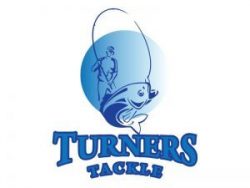Micro Marvels: A Mini Guide to Catching Mini Species Along UK Shores
While grand catches of larger fish often steal the spotlight, the UK shores offer a hidden world of mini species waiting to be discovered by enthusiastic anglers. Fishing for mini species can be a rewarding and fascinating experience, providing a different dimension to the traditional angling adventure. In this guide, we’ll explore the techniques and tips for catching mini species along the shores of the United Kingdom.
1. Choosing the Right Gear:
- Ultra-Light Tackle: Opt for ultra-light spinning or coarse fishing tackle. A light rod and reel combo, matched with fine fishing line, will allow you to feel the subtle bites of mini species.
- Micro Hooks: Use small, sharp hooks to accommodate the mouths of mini species. Size 14 to 22 hooks work well for small fish like blennies, gobies, and juvenile species.
- Fine Leaders: Attach a fine leader to reduce visibility in the water and avoid spooking cautious mini species. Fluorocarbon leaders in the 2 to 4 lb test range are suitable.
2. Targeting Mini Species Hotspots:
- Rocky Shores: Explore rocky shorelines, tide pools, and areas with crevices where mini species seek refuge. These environments provide abundant food sources for smaller fish.
- Pier and Jetty Pilings: Fishing around pier pilings or jetty structures can yield a variety of mini species. These areas often harbor juvenile fish seeking shelter and easy access to plankton and small prey.
- Estuaries and Salt Marshes: Estuarine environments are rich in nutrients and attract a variety of mini species. Look for shallow areas with seagrass beds, reeds, or oyster beds.
3. Bait Selection:
- Natural Baits: Use natural baits such as tiny pieces of worm, maggots, or small pieces of shrimp. Mini species are often opportunistic feeders, and presenting them with natural offerings can be highly effective.
- Artificial Lures: Experiment with micro-sized artificial lures like tiny spinners, micro jigs, or small soft plastics. Mimicking the movements of small prey can entice strikes from mini species.
4. Techniques for Mini Species:
- Micro Jigging: Employ micro jigging techniques by gently bouncing a small jig along the bottom. This mimics the movement of prey and can attract the attention of mini species.
- Drop Shotting: Drop shot rigs with tiny hooks and lightweight lures are effective for tempting mini species. The rig allows for precise control of the bait’s depth.
- Float Fishing: Use a light float rig to present baits at different depths. Adjust the float to find the level at which mini species are actively feeding.
5. Patience and Observation:
- Subtle Bites: Mini species often provide delicate bites, so be attentive to the smallest movements or twitches of your rod tip. A gentle, steady hand is crucial for hooking these tiny marvels.
- Observe the Water: Watch for signs of activity such as small ripples, surface disturbances, or the presence of baitfish. Mini species are often indicators of a thriving ecosystem.
6. Release with Care:
- Handle with Care: Mini species can be delicate, so handle them with care to avoid injury. Wet your hands before touching the fish to protect their slime coat.
- Quick Release: Minimize the time the fish spends out of the water, and release them quickly to ensure their well-being. Use barbless hooks for easy removal.
Conclusion:
Catching mini species along UK shores opens a window into the intricate world of marine life that often goes unnoticed. Armed with the right gear, bait, and techniques, anglers can embark on a journey filled with surprises and the joy of connecting with the smaller inhabitants of the coastal ecosystem. So, pack your ultra-light gear, explore the nooks and crannies of the shoreline, and prepare to be enchanted by the micro marvels waiting beneath the waves.
Side note, searching low water weed by hand can produce a lot of mini species. Butterfish and Blennies a plenty in these areas.

